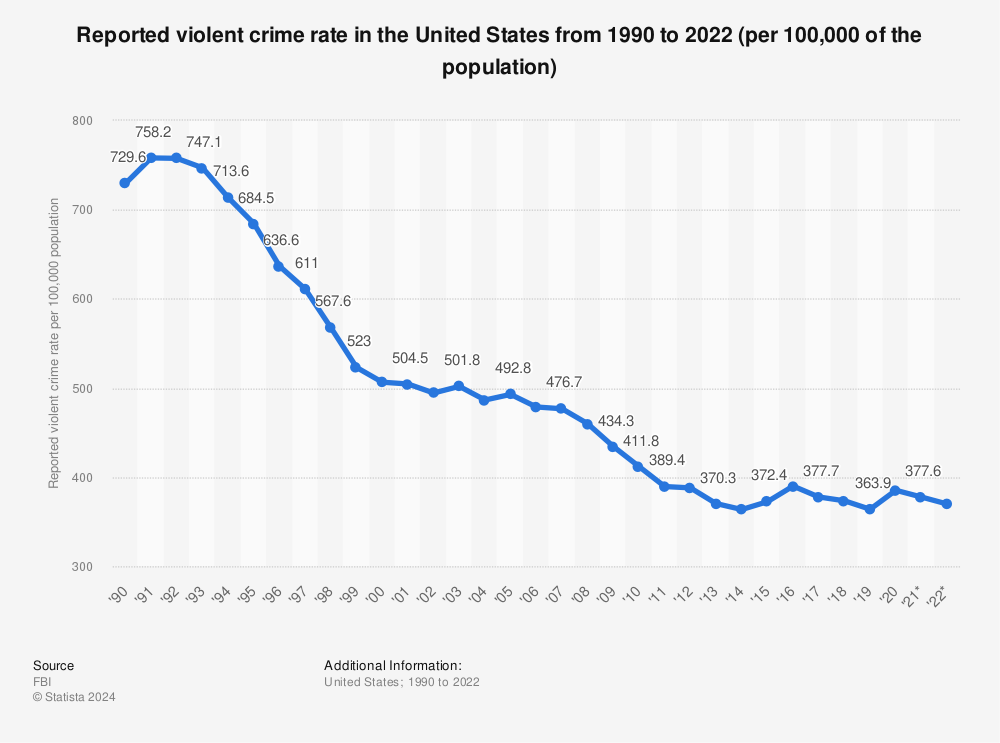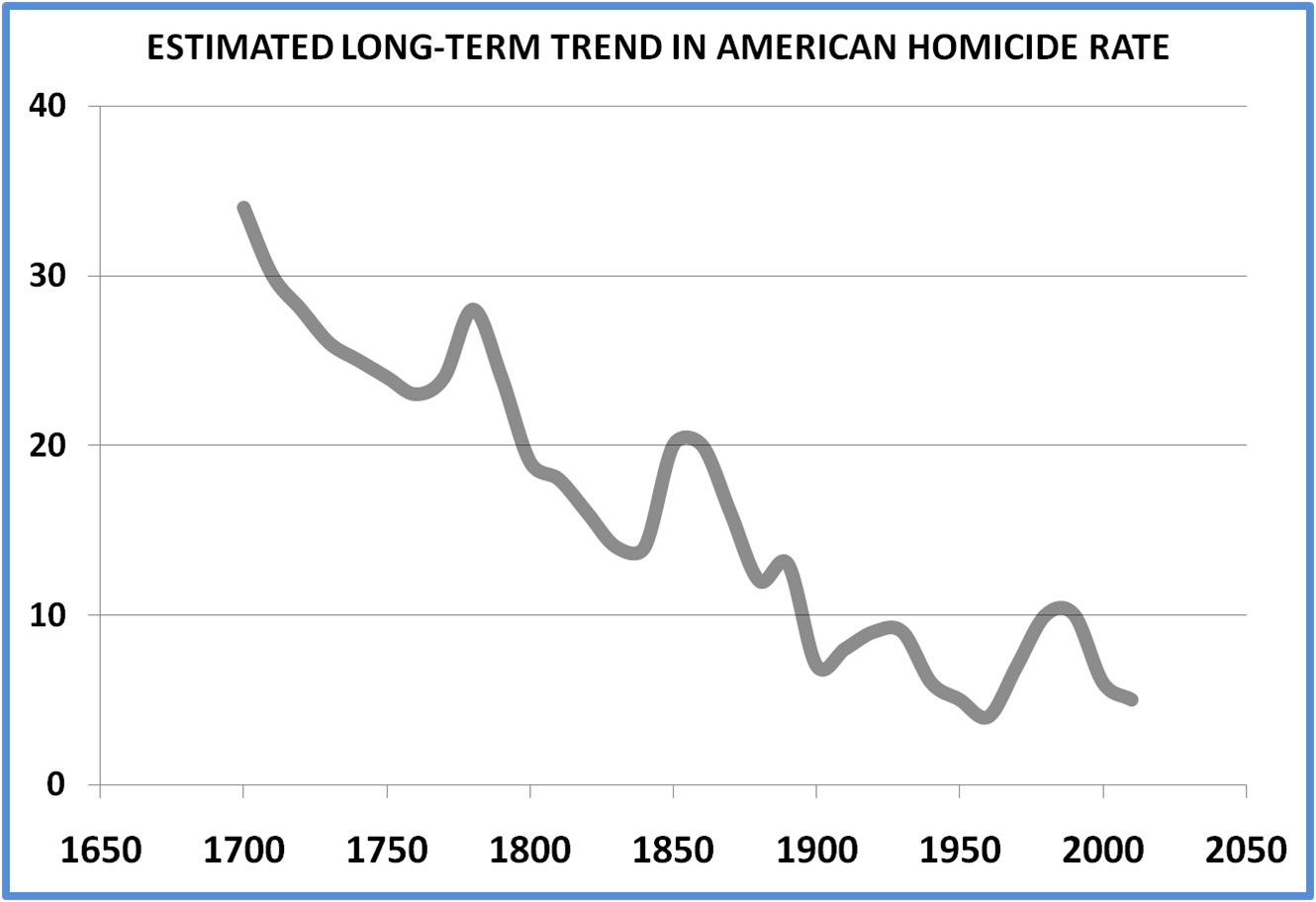Thank you for challenging me! Actually, just means that it's more complicated. The vigor, martiality, and aggressiveness of Western society has been falling for (a few) centuries. Its peak, at least in England, was probably around the 16th century, as evidenced by the extremely harsh punishments, extreme patriarchy, and all other factors going along with high-V (for Vigor). Murder and other violent crime is likely correlated with V, I would hypothesize. Testing would prove out whether I am right or not. If we're going to talk short-term, as in decades rather than millenia, which is likely all you're concerned about (few people are weird like me), then lemming cycles probably play a bigger role. This is the natural cycle between high V -- aggressiveness, expansionism, fighting spirit -- and high C -- diligence, non-confrontationality, innovation, economic success. Short-term murder rate variation fits the lemming cycle pretty nicely, take a look:

Anyway, all this is violent crime. Non-violent crime is another story. Non-violent crime has been rising for the past century. Dishonesty has become epidemic. The multi-century trough of property crime (the peak of honesty) was likely around 1880 in America. Perhaps a little earlier in the North, a little later in the South. Look, everyone knows this. We used to be able to leave our doors unlocked. There used to be far less theft, vandalism, and other property crime. Statistics are spotty, but the trend has been so pronounced we don't even need them. It's been obvious to everyone who has lived long enough.
Crime is kind of a side-annoyance, anyway. Not really a huge deal. Other than the people who are slaughtered or robbed by it. The huge deal is if civilization collapses. That kind of... can be bad. When that happens. Don't want that happening.
You really should look into this Biohistory stuff, 3.0. You'd love it. Get the book. Plus study up on r vs. K strategies. Actually, first read Hoppe's Short History of Man. Totally pro-monarchy, and I know you're all about that. It'll prime your intellectual gears up for Biohistory.
Point A to keep in mind when deftly but flippantly drawing these sweeping conclusions of yours: our "historically" is extremely limited and spotty. What was the crime rate in Rome 120 BC vs. 320 BC? Point B is new information you were not aware of: Willingness to accept large, powerful polities seems to increase as C increases. Naturally there would be a correlation, then, between large states and virtually everything good in civilization. But the civilization is caused by the high-C temperament. It is not somehow decreed into being by the state.






 Reply With Quote
Reply With Quote




 ~hugs~
~hugs~




Connect With Us